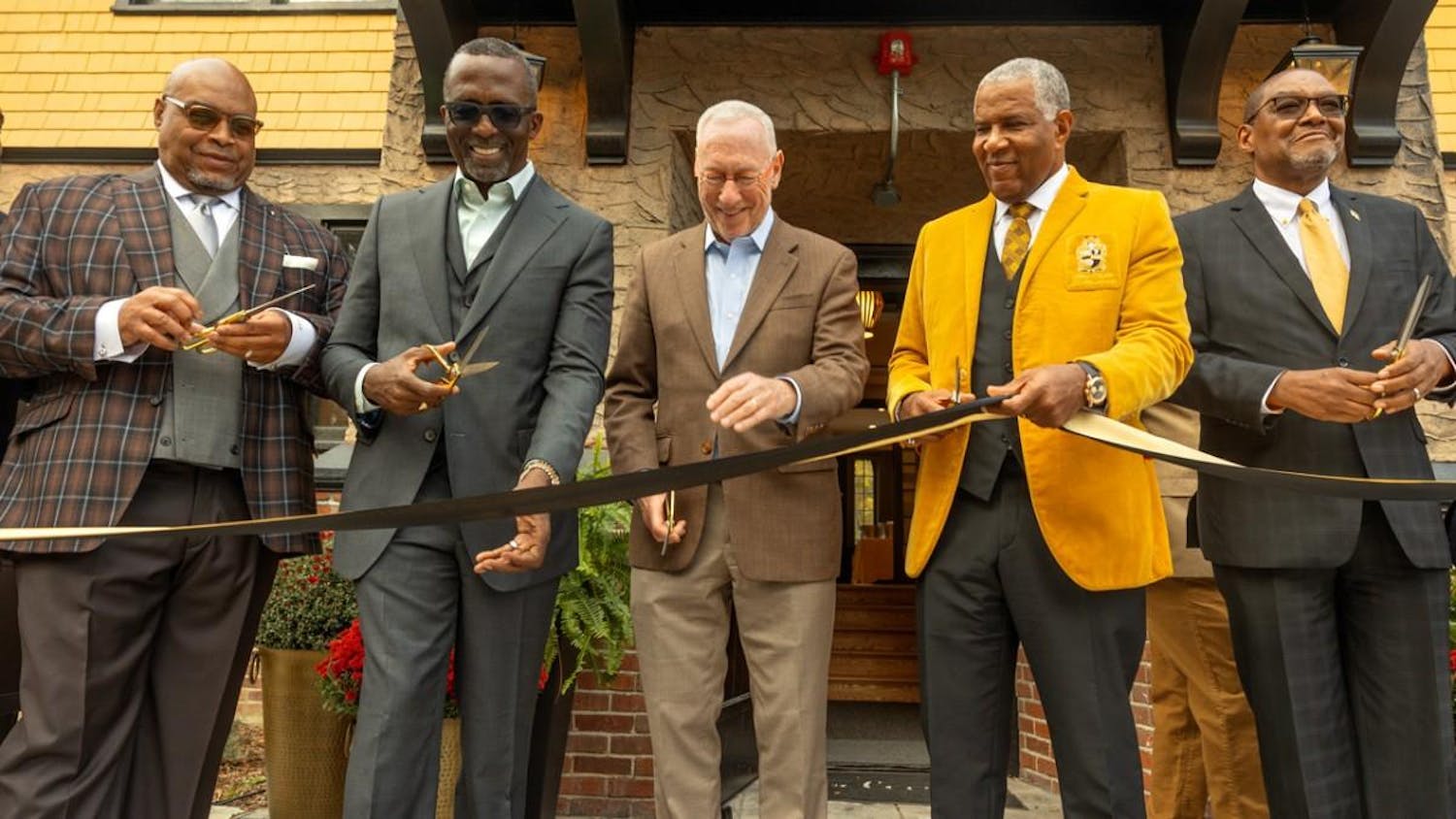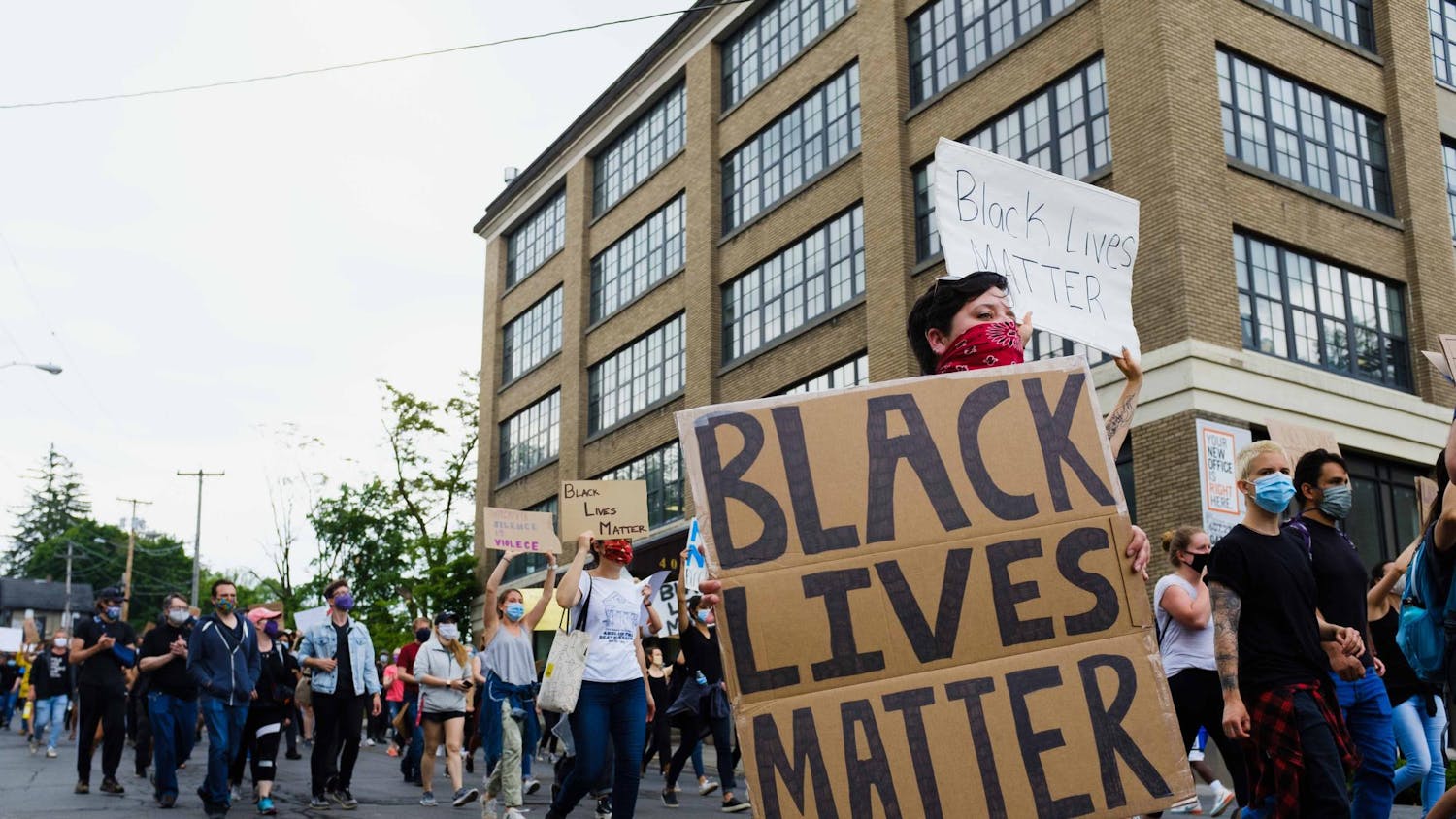Alderperson Robert Cantelmo grad (D) and Janis Kelly ’71 (R), the major party nominees for mayor of Ithaca, gave a joint interview with community media organization Pegasys on Monday, Sept. 18. The pair discussed some of the most pressing issues affecting the City of Ithaca, such as the negotiations with Cornell over the payment in lieu of taxes from the University to the city, ways of tackling Ithaca’s housing crisis, progress on Ithaca’s Green New Deal and a citywide increase in crime.
This year’s election comes as the mayor’s role in city government has been reduced due to the new city manager position scheduled to debut in 2024, along with an accompanying 50 percent decrease in salary. However, both Cantelmo and Kelly stated they were running as consensus builders, though their interpretation of consensus building differed.
Cantelmo said he aimed to be the bridge between Common Council’s members as well as the bridge between the city and other entities such as the University, businesses and state and federal agencies.
“I have likened the new role of the mayor as being sort of a majority leader for [the Common Council], someone who can work with the different neighborhoods and the different wards across the city, someone who can work with the different communities and the different issues and try to bring [Common Council] together toward consensus,” Cantelmo said, who currently serves as an alderperson for the Fifth Ward.
Kelly, on the other hand, said she felt the city’s government is failing its residents and her goal as mayor would be to bring a more neighborly attitude to local politics.
“The way I think of it is turning away from the politics of grievance to the politics of gratitude and compassion, and working together as neighbors,” Kelly said. “And we're going to have to come together to solve the problems because the city's in a mess. We have crime problems, money problems, flooding problems, infrastructure problems and huge staffing problems. And that is not something that somebody is going to parachute in and save us from — we're going to have to do that ourselves.”
The biggest point of disagreement was the negotiation over Cornell’s PILOT payments to the city, where Kelly accused the city of erring during negotiations by not accepting Cornell’s initial offer of $3.15 million per year — less than 10 percent of the $33 million it would owe in property taxes if it were not tax exempt.
“The three anonymous people negotiating on the city's behalf dropped the ball and turned down $3 million and asked for five and Cornell walked away from the negotiations,” Kelly said. “So I don't know where that stands. But once the memorandum of understanding expires, the city has a $1.6 million hole in the budget where the Cornell contribution used to go because they've screwed up the negotiations.”
Since the debate’s taping on Sept. 12, the two sides have come to an agreement — which will go to a vote at a special Common Council meeting on Sept. 20 — where Cornell will pay Ithaca $4 million, adjusted annually for inflation.
Cantelmo disagreed with Kelly, saying Cornell is a part of the Ithaca community — as are its students, faculty and staff — and the University should therefore be expected to contribute its fair share to its well-being.
“What the city provides in terms of its geography, its resources, its infrastructure, the students and their families all draw upon, as do the faculty and staff,” Cantelmo said. “Those things require maintenance, they require attention, they require reinvestment. And I think it was a very smart call by the negotiating team to basically say that this was not an acceptable offer.”
Cantelmo went on, saying Cornell has to accept its responsibility for poor infrastructure conditions due to the city’s lack of funding for repairs.
“Responsibility there rests with the university system that has decided to say, ‘We are not willing to make this investment. We are not willing to provide roads for our students,’” Cantelmo said. “Cornell is more than welcome to not pay for their own roads, if they want to instead contribute to the city and they want to get to the back of the line, like everyone else in the community who has to wait for road repair because we're insufficiently able to cover the DPW replacement costs.”
The two also disagreed on the best way to approach the city’s housing crisis, though both candidates said there were certain regulations needed to change. Cantelmo argued in favor of what he called the “missing middle” — the bridge between freestanding single-family homes and apartment complexes that often take the form of duplexes and townhomes — saying his goal was to allow Ithacans to purchase homes.
“We need more diversity of options for the people in this community,” Cantelmo said. “You used to be able to start working and purchase a starter home. And the ability to do that, not just in Ithaca, but across the nation, has really diminished.”
Kelly, however, said she was against regulation of housing developments, saying developers find Ithaca’s regulations so burdensome that they choose instead not to build in Ithaca at all.
“Just about any housing developer you talk to about building in the city of Ithaca will tell you, ‘There are too many hurdles, there are too many regulations. It's not worth it,’” Kelly said. “So they go to Lansing.”
Both Cantelmo and Kelly agreed on fully funding the Ithaca Police Department, especially given an increase in crime around the city.
“For the city to become vibrant again, people have to feel safe, and public spaces have to be safe,” Kelly said. “And you have to not be forever hassled by somebody who's off their head on drugs.”
Cantelmo said the best way of addressing the crime rate is to increase support for those in need.
“When there's a lack of housing, especially in supportive services for folks who are transitioning out of being unhoused, or people who are at risk for becoming unhoused — when that infrastructure isn't there, people are falling through the gaps,” Cantelmo said. “And that's not a recipe for a vibrant community.”
Election Day is on Nov. 7, and early voting is from Oct. 28 to Nov. 5.











